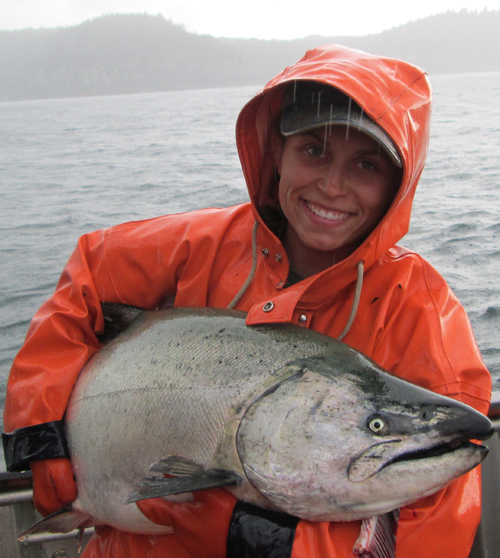Commercial and recreational fishers, scientists and indigenous leaders are growing more vocal in their concerns that increased mining activity in Western Canada may harm wild salmon habitat in Southeast Alaska.
The province of British Columbia is set to approve as many as eight new mines and expand or re-open nine more. Of those projects, five are in the watersheds of key salmon rivers – the Taku, Stikine, and Unut – that originate in British Columbia and flow into Southeast Alaska. Concerns are growing among in Alaska that acid mine drainage and toxic heavy metals from the mines may compromise the long-term health of salmon runs in the region.
In response to the concerns, on 6 October the provincial government in British Columbia signed a Statement of Cooperation on Protection of Transboundary Waters along with Alaskan officials. The agreement established a technical working group on water monitoring and created a more formal process for conducting and sharing information on environmental assessments and mining-related activity in the region.
However, advocacy groups argue that the statement is non-binding and insufficient to completely protect the region. Environmental lobbyists, fishermen, and scientists at the Alaska State Legislature’s Fisheries Committee hearing, which took place in Juneau on 12 October echoed that sentiment, saying the statement is only a “first step.” They are calling for international policies between the United States and Canada to oversee the transboundary waters.
Also in October, Alaska’s congressional delegation (U.S. senators Lisa Murkowski and Dan Sullivan, and U.S. Rep. Don Young) received a response from the U.S. State Department to their September request for a formal meeting with Secretary of State John Kerry to discuss transboundary mines. The State Department letter told the Alaska Congressional Delegation that it will remain in close contact with concerned Alaskans and is committed to identifying the best ways to resolve shared concerns about risks posed to water quality and livelihoods in Alaska by mining activities in British Columbia but did not grant them a meeting with Secretary Kerry.
Murkowksi responded by saying, “I remain disappointed that the State Department refuses to address our questions and suggestions, such as to consider appointing a special representative for U.S.-Canada transboundary issues. And it is unacceptable that Secretary Kerry has yet to meet directly with Alaskans on such a hugely important issue. The State Department’s response is a step in the right direction, but we still have a long way to go until Alaskans’ concerns are adequately addressed.”
In addition to federal involvement, local salmon advocates are calling for “enforceable measures” such as funding for long-term water quality monitoring and financial guarantees to compensate Alaskans should something go awry at one of the B.C. mines.
“There are two economies that are clashing,” said Bev Sellars, chairwoman of the Canadian organization First Nations Women Advocating Responsible Mining. “One grows and walks on the land and swims in the waters. That is the economy that has sustained generations on this land. … And the other economy is where the profit is the bottom line, and that is a dangerous economy when there are no safeguards in place.”
In November, the McDowell Group released an economic study commissioned by the advocacy group Salmon Beyond Borders. The study considers the economic value of commercial fishing and tourism, two of the region’s key industries that depend significantly on the health of Alaskan rivers. The study found that the Taku, Stikine, and Unuk generate an annual USD 48 million (EUR 46 million) in economic activity for Southeast Alaska. When considering a 30-year horizon, these watersheds are valued at just under USD 1 billion (EUR 963 million).
The study further noted the unique, perpetual nature of the watershed resources, and said “Fish, wildlife, and scenic resources in the watersheds are fully renewable and have the potential to offer greater economic value as similar resources and experiences grow more scarce.”
“Despite the limitations in the study, there is no question that the bounty from these rivers provides thousands of jobs that contribute to the well-being of communities on both sides of the border,” said Dale Kelley, executive director of the Alaska Trollers Association. “These watersheds are economic powerhouses and worthy of international protections.”






